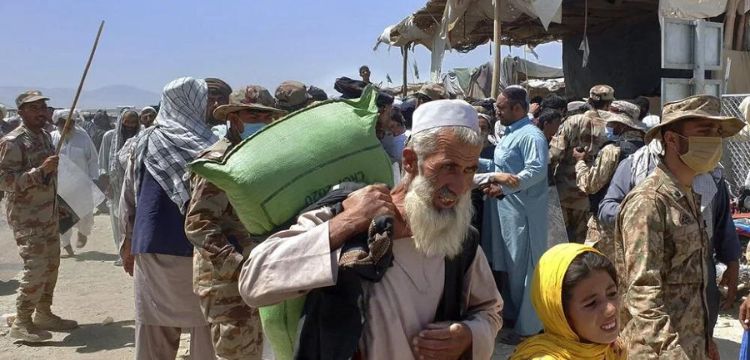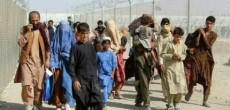[vc_row][vc_column][vc_column_text dp_text_size=”size-4″]
In a significant move, Pakistan’s Caretaker Interior Minister, Sarfraz Bugti, recently announced a major crackdown against illegal immigrants, with a particular focus on Afghan nationals residing in the country without valid passports and visas. This announcement has sparked immediate reactions across various sectors, raising concerns about its potential impacts on the economy, labor force, and property market. As the November 1st, 2023 deadline approaches, Pakistan is bracing itself for a significant transformation in its immigration landscape.
Impact on Property Market
One of the most immediate effects of this crackdown has been felt in Pakistan’s property market. The influx of illegal immigrants, particularly from Afghanistan, has significantly contributed to the demand for housing and rental properties in various urban centers across Pakistan. With the impending crackdown, there is a growing apprehension that the property market may witness a downturn.
Over the years, many Afghan nationals have invested in properties and businesses in Pakistan. The uncertainty surrounding their status and the fear of potential deportation has led some to consider selling their assets quickly, which could lead to an oversupply of properties in the market. As a result, property prices may experience a decline in the short term.
Also Read: Govt Sets Nov 1 Deadline for Illegal Immigrants to Leave Pakistan
However, it’s essential to note that the impact on the property market might not be uniform across the country. Major urban centers with a higher concentration of illegal immigrants could see more significant price fluctuations than areas with lower immigrant populations. Local real estate experts and investors are closely monitoring the situation, awaiting further developments in the crackdown.
Labor Shortages and Economic Consequences
Pakistan has long relied on foreign labor, including Afghan workers, to fill critical roles in various industries, such as agriculture, construction, and manufacturing. With the crackdown on illegal immigrants, there is growing concern about potential labor shortages in these sectors.
Afghan laborers have played a pivotal role in the Pakistani economy, and their absence could lead to disruptions in production and project delays, which may impact economic growth. Businesses may face challenges finding suitable replacements for the workforce they have come to rely on, potentially resulting in increased labor costs and reduced productivity.
On a broader scale, the crackdown may also affect remittances from Afghan workers sending money back to their home countries. A reduction in remittances could have significant economic implications for both Pakistan and Afghanistan.
Social and Humanitarian Considerations
While the crackdown on illegal immigrants aims to address security concerns and ensure that individuals in the country are properly documented, it also raises important humanitarian issues. Afghan nationals who have been residing in Pakistan for an extended period may have established families, businesses, and social ties within the country. The sudden enforcement of deportation orders could lead to the separation of families and create a humanitarian crisis.
Moreover, there is concern about the conditions that deported individuals may face upon returning to Afghanistan, especially in light of the ongoing instability in the region. Human rights organizations and international observers are closely monitoring these developments and advocating for a more compassionate approach to address the situation.
The announcement of Pakistan’s crackdown on illegal immigrants, particularly Afghan nationals, has sent shockwaves through the nation. While the move aims to address security concerns and regulate immigration, it has also generated immediate economic and social consequences. The property market faces potential fluctuations, labor shortages may impact various industries, and humanitarian considerations are coming to the forefront.
As the November 1st deadline approaches, it is essential for the Pakistani government to strike a balance between its security objectives and the potential impact on its economy and society. A well-thought-out and compassionate approach may be necessary to address the complex challenges posed by this crackdown and its consequences for the people of Pakistan and the Afghan nationals residing within its borders.
[/vc_column_text][/vc_column][/vc_row]











